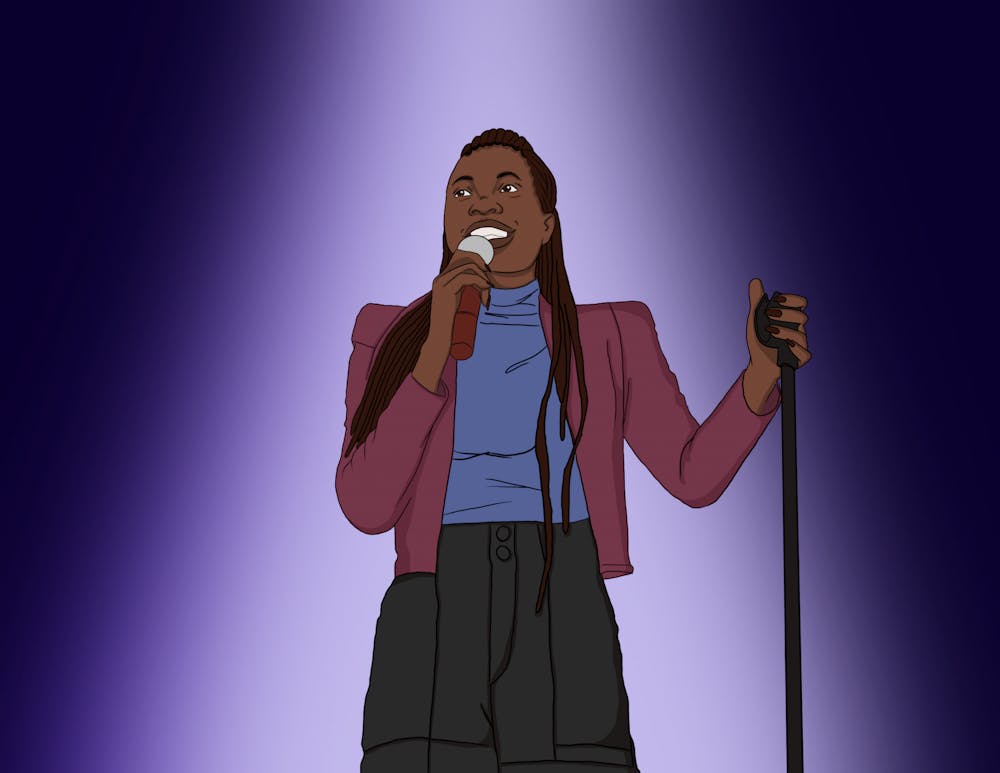Musical artist and actress Awkwafina is yet again under scrutiny for her use of a "blaccent" and her subsequent apology. While I don't aim to go over the many issues defining her career, her latest public debacle and apology made me stop and think.
Why don't people just admit they find the way Black people speak funny?
There're a lot of different responses to accusations of using a blaccent, otherwise referred to as using ebonics or African-American Vernacular English. It's a pattern of speech with its own grammatical rules and conventions that is most commonly used among Black Americans. Despite this, plenty of non-Black people use AAVE, and always have some kind of excuse at the ready.
A common one is that it's merely TikTok and Gen Z language, the new slang of the young generation. Another common response is similar to what Awkwafina said, citing an upbringing amongst Black people that influenced their speech.
What these excuses ignore is just how non-Black usage of AAVE manifests itself primarily in humor.
It makes people laugh when a non-Black person is juxtaposed with Blackness. When non-Black people on TikTok or Twitter say phrases like "whew chile" or "no cap" they're doing it because they think it's funny. It's a punchline. They don't actually use this language in day-to-day life like Black people do, it exists purely in an internet space where humor rules all.
There are plenty of viral examples of non-Black people mispronouncing these terms, such as pronouncing "chile" like the country. It reveals they've only ever read these terms but never spoken them.
Of course, these examples come after a long history of Black speech being persecuted and repressed. It is often called "broken English" and twisted to be indicative of poor education. The practice of treating AAVE as a non-legitimate language still affects Black people to this day, with it being ostracized in academic and professional settings.
One such case is as recent as 2018, where after being arrested a Black man said "give me a lawyer dog." The police denied his request for an attorney, saying they believed the suspect requested a literal canine.
This is not to say every instance of a non-Black person using AAVE can be judged harshly. It is near impossible to escape its popularity, and I'm willing to believe that some phrases are so ubiquitous that most people using them wouldn't know the origins. Both Black and non-Black alike use phrases like "I'll hit you up later" instead of "I'll call you later" or "I'm straight chillin" instead of "I'm relaxing right now."
Instances like these are akin to other popular phrases that have relatively unknown origins, such as the saying "long time no see" evolving from being seen as "broken English" to becoming commonplace across the globe.
The difference is intent. When a non-Black person says "it be like that sometimes" in a joke, the punchline is that Black people talk funny. When a non-Black person says "I'll hit you up later '' there is not a joke here – it's just speech.
The punchline of finding Black speech funny is incredibly common and popular throughout history. From the minstrel show actors in Blackface saying "yessuh massah" to the relatively recent viral videos using phrases like "ain't nobody got time for that."
It's nothing new. So instead of claiming the reason why you might use AAVE is because of a unique upbringing amongst Black people, or because it's really just Gen Z language, just admit to yourself that you find Black people's speech patterns to be laughable.
Maybe once more people admit that to themselves, we won't have to have this conversation every time a celebrity butchers AAVE because, truly, ain't nobody got time for that.






